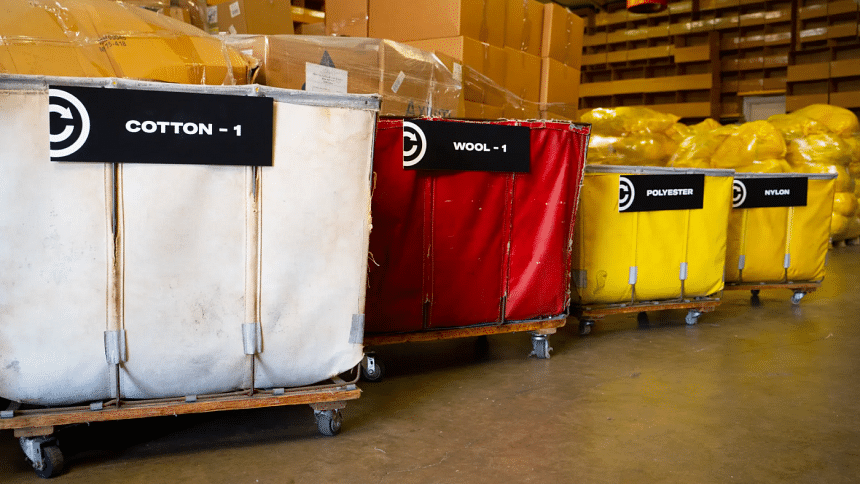Six intl. startups working towards fashion recycling solutions

The fashion industry's significant issue of excessive waste is prompting governments worldwide, especially the EU, to set ambitious recycling goals. However, the challenge lies in the complexity of recycling textiles, and there is a lack of mature technical solutions to address this issue effectively.
NGOs warn the real problem is over-production, and that tech innovations may just provide cover for brands to continue pumping out billions of new clothes. But the pressure to start recycling at a massive scale is happening now. "Brands need to get to high levels of recycling at super-speed, and if they don't, the EU will be giving them massive fines," said circular economy consultant Paul Foulkes-Arellano. AFP spoke to multiple experts to see which ideas could make a difference. Many will fail, but here is a snapshot of current contenders that illustrate the different challenges in textile recycling.
MycoWorks: Mushroom leather
MycoWorks grows mycelium (fungus roots) that comes out like luxury leather, with early clients including Hermes and General Motors (for car interiors). "The only input is sawdust and energy costs are extremely low because it's a fungus, not a plant, so there's no need for light, and very little water," said CEO Matt Scullin.
While the makers of most new biomaterials are struggling to reach industrial scale, MycoWorks claims to have cracked the problem, billing itself as "the first and only biomaterials company to open a full-scale factory" in the US state of South Carolina, with the first 1,000-sheet harvest coming off the line in January.
Circ: Unblending clothes
Most clothes are a blend of materials, making them hard to recycle. US-based Circ has invented a chemical solution to separate the most common blend, polycotton, into its constituent parts. It uses a hydrothermal process to liquefy the polyester and separate it from the cotton. Both can then be turned into new fibres. Retail giant Zara used them for a clothing line released in April.
SuperCircle: Collecting and sorting
The world lacks the infrastructure to collect and sort large amounts of old clothes, which must be kept clean and separate from other waste. SuperCircle brings together delivery firms, warehouses and tracking systems to streamline and cheapen the process. They hope to change public attitudes with in-store drop-off bins, free shipping labels and other encouragements.
"We need ease, convenience and incentives for consumers so that when they are done with an item, the first thing they think is end-of-life recycling," said co-founder Stuart Ahlum. They now handle all recycling logistics for multiple companies and sectors, including Uniqlo North America.
Saentis Textiles: in-house recycling
Saentis Textiles already helped solve one key challenge with a patented machine that can recycle cotton with minimal damage to the fibres, so it can make quality new textiles. Its recycled cotton is used by brands including IKEA, Patagonia and Tommy Hilfiger. Now it is selling its machine to textile companies so they can install one directly in their factories, allowing them to chuck in cut-offs and scraps for recycling on the spot.
Unspun: 3D weaving machine
Unspun claims to have invented the world's first 3D weaving machine, capable of creating a custom-sized pair of jeans directly from yarns in under 10 minutes. Currently building its first micro-factory in Oakland, California to prove the concept, the machine could remove the need for brands to keep large stockpiles of inventory, cutting down on waste and transport.
Cetia: Preparing old clothes
Clothes must be prepared before they can be recycled, and this is the speciality of France-based Cetia. Some of its machines are simple, like one that yanks the soles off shoes. Others are more complex. One uses AI to recognise hard points such as buttons and zippers, and then a laser to slice them off without damaging the item.

 For all latest news, follow The Daily Star's Google News channel.
For all latest news, follow The Daily Star's Google News channel. 




Comments